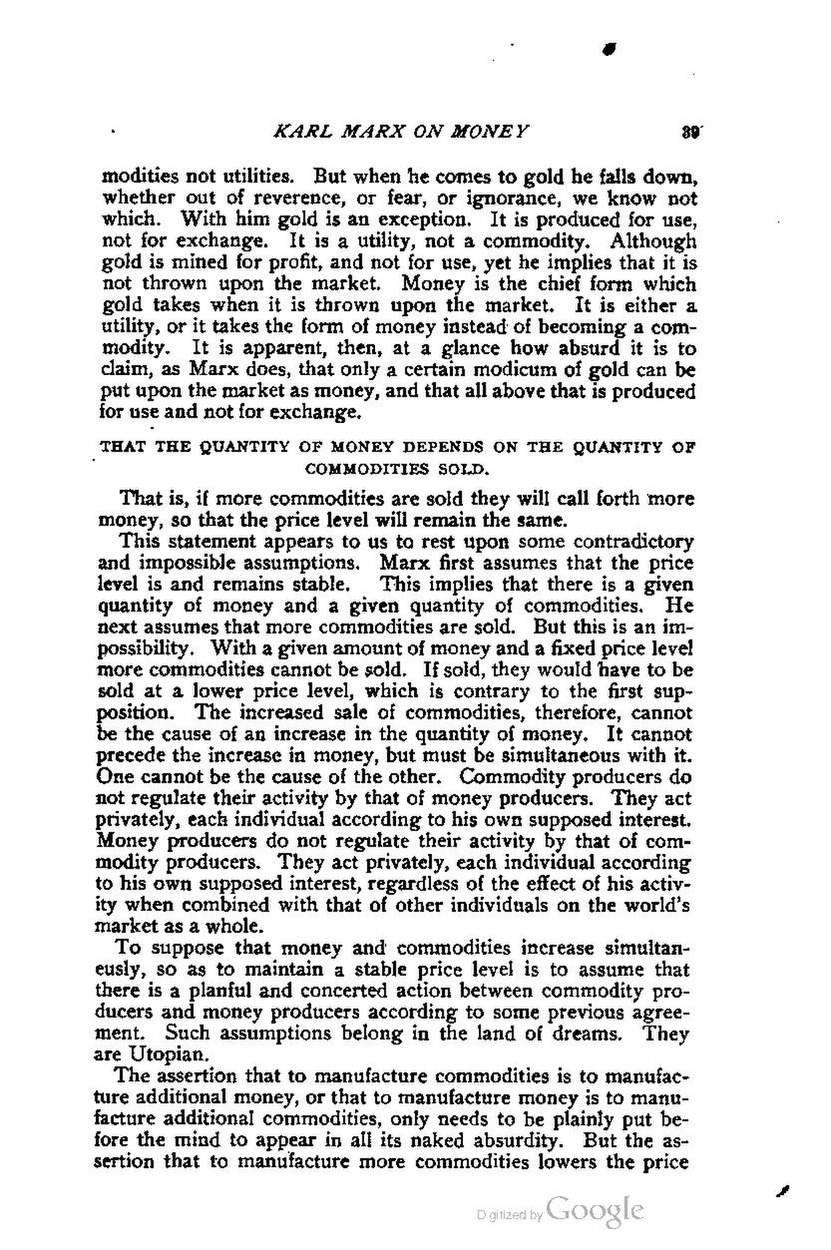modities not utilities. But when he comes to gold he falls down, whether out of reverence, or fear, or ignorance, we know not which. With him gold is an exception. It is produced for use, not for exchange. It is a utility, not a commodity. Although gold is mined for profit, and not for use, yet he implies that it is not thrown upon the market. Money is the chief form which gold takes when it is thrown upon the market. It is either a utility, or it takes the form of money instead of becoming a commodity. It is apparent, then, at a glance how absurd it is to claim, as Marx does, that only a certain modicum of gold can be put upon the market as money, and that all above that is produced for use and not for exchange.
THAT THE QUANTITY OF MONEY DEPENDS ON THE QUANTITY OF COMMODITIES SOLD.
That is, if more commodities are sold they will call forth more money, so that the price level will remain the same.
This statement appears to us to rest upon some contradictory and impossible assumptions. Marx first assumes that the price level is and remains stable. This implies that there is a given quantity of money and a given quantity of commodities. He next assumes that more commodities are sold. But this is an impossibility. With a given amount of money and a fixed price level more commodities cannot be sold. If sold, they would have to be sold at a lower price level, which is contrary to the first supposition. The increased sale of commodities, therefore, cannot be the cause of an increase in the quantity of money. It cannot precede the increase in money, but must be simultaneous with it. One cannot be the cause of the other. Commodity producers do not regulate their activity by that of money producers. They act privately, each individual according to his own supposed interest. Money producers do not regulate their activity by that of commodity producers. They act privately, each individual according to his own supposed interest, regardless of the effect of his activity when combined with that of other individuals on the world's market as a whole.
To suppose that money and commodities increase simultaneusly, so as to maintain a stable price level is to assume that there is a planful and concerted action between commodity producers and money producers according to some previous agreement. Such assumptions belong in the land of dreams. They are Utopian.
The assertion that to manufacture commodities is to manufacture additional money, or that to manufacture money is to manufacture additional commodities, only needs to be plainly put before the mind to appear in all its naked absurdity. But the assertion that to manufacture more commodities lowers the price
